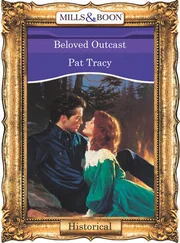Halle was more like a brother than a husband. His care suggested a family relationship rather than a man's laying claim. For years they saw each other in full daylight only on Sundays. The rest of the time they spoke or touched or ate in darkness. Predawn darkness and the afterlight of sunset. So looking at each other intently was a Sunday morning pleasure and Halle examined her as though storing up what he saw in sunlight for the shadow he saw the rest of the week. And he had so little time. After his Sweet Home work and on Sunday afternoons was the debt work he owed for his mother. When he asked her to be his wife, Sethe happily agreed and then was stuck not knowing the next step. There should be a ceremony, shouldn't there? A preacher, some dancing, a party, a something. She and Mrs.
Garner were the only women there, so she decided to ask her.
"Halle and me want to be married, Mrs. Garner."
"So I heard." She smiled. "He talked to Mr. Garner about it. Are you already expecting?"
"No, ma'am."
"Well, you will be. You know that, don't you?"
"Yes, ma'am."
"Halle's nice, Sethe. He'll be good to you."
"But I mean we want to get married."
"You just said so. And I said all right."
"Is there a wedding?"
Mrs. Garner put down her cooking spoon. Laughing a little, she touched Sethe on the head, saying, "You are one sweet child." And then no more.
Sethe made a dress on the sly and Halle hung his hitching rope from a nail on the wall of her cabin. And there on top of a mattress on top of the dirt floor of the cabin they coupled for the third time, the first two having been in the tiny cornfield Mr. Garner kept because it was a crop animals could use as well as humans. Both Halle and Sethe were under the impression that they were hidden. Scrunched down among the stalks they couldn't see anything, including the corn tops waving over their heads and visible to everyone else.
Sethe smiled at her and Halle's stupidity. Even the crows knew and came to look. Uncrossing her ankles, she managed not to laugh aloud.
The jump, thought Paul D, from a calf to a girl wasn't all that mighty. Not the leap Halle believed it would be. And taking her in the corn rather than her quarters, a yard away from the cabins of the others who had lost out, was a gesture of tenderness. Halle wanted privacy for her and got public display. Who could miss a ripple in a cornfield on a quiet cloudless day? He, Sixo and both of the Pauls sat under Brother pouring water from a gourd over their heads, and through eyes streaming with well water, they watched the confusion of tassels in the field below. It had been hard, hard, hard sitting there erect as dogs, watching corn stalks dance at noon. The water running over their heads made it worse.
Paul D sighed and turned over. Sethe took the opportunity afforded by his movement to shift as well. Looking at Paul D's back, she remembered that some of the corn stalks broke, folded down over Halle's back, and among the things her fingers clutched were husk and cornsilk hair.
How loose the silk. How jailed down the juice.
The jealous admiration of the watching men melted with the feast of new corn they allowed themselves that night. Plucked from the broken stalks that Mr. Garner could not doubt was the fault of the raccoon. Paul F wanted his roasted; Paul A wanted his boiled and now Paul D couldn't remember how finally they'd cooked those ears too young to eat. What he did remember was parting the hair to get to the tip, the edge of his fingernail just under, so as not to graze a single kernel.
The pulling down of the tight sheath, the ripping sound always convinced her it hurt.
As soon as one strip of husk was down, the rest obeyed and the ear yielded up to him its shy rows, exposed at last. How loose the silk. How quick the jailed-up flavor ran free.
No matter what all your teeth and wet fingers anticipated, there was no accounting for the way that simple joy could shake you.
How loose the silk. How fine and loose and free.
DENVER'S SECRETS were sweet. Accompanied every time by wild veronica until she discovered cologne. The first bottle was a gift, the next she stole from her mother and hid among boxwood until it froze and cracked. That was the year winter came in a hurry at suppertime and stayed eight months. One of the War years when Miss Bodwin, the whitewoman, brought Christmas cologne for her mother and herself, oranges for the boys and another good wool shawl for Baby Suggs. Talking of a war full of dead people, she looked happy-flush-faced, and although her voice was heavy as a man's, she smelled like a roomful of flowers-excitement that Denver could have all for herself in the boxwood. Back beyond 1x4 was a narrow field that stopped itself at a wood. On the yonder side of these woods, a stream.
In these woods, between the field and the stream, hidden by post oaks, five boxwood bushes, planted in a ring, had started stretching toward each other four feet off the ground to form a round, empty room seven feet high, its walls fifty inches of murmuring leaves.
Bent low, Denver could crawl into this room, and once there she could stand all the way up in emerald light.
It began as a little girl's houseplay, but as her desires changed, so did the play. Quiet, primate and completely secret except for the noisome cologne signal that thrilled the rabbits before it confused them. First a playroom (where the silence was softer), then a refuge (from her brothers' fright), soon the place became the point. In that bower, closed off from the hurt of the hurt world, Denver's imagination produced its own hunger and its own food, which she badly needed because loneliness wore her out. Wore her out. Veiled and protected by the live green walls, she felt ripe and clear, and salvation was as easy as a wish.
Once when she was in the boxwood, an autumn long before Paul D moved into the house with her mother, she was made suddenly cold by a combination of wind and the perfume on her skin. She dressed herself, bent down to leave and stood up in snowfall: a thin and whipping snow very like the picture her mother had painted as she described the circumstances of Denver's birth in a canoe straddled by a whitegirl for whom she was named.
Shivering, Denver approached the house, regarding it, as she always did, as a person rather than a structure. A person that wept, sighed, trembled and fell into fits. Her steps and her gaze were the cautious ones of a child approaching a nervous, idle relative (someone dependent but proud). A breastplate of darkness hid all the windows except one. Its dim glow came from Baby Suggs' room. When Denver looked in, she saw her mother on her knees in prayer, which was not unusual. What was unusual (even for a girl who had lived all her life in a house peopled by the living activity of the dead) was that a white dress knelt down next to her mother and had its sleeve around her mother's waist. And it was the tender embrace of the dress sleeve that made Denver remember the details of her birth-that and the thin, whipping snow she was standing in, like the fruit of common flowers. The dress and her mother together looked like two friendly grown-up women-one (the dress) helping out the other.
And the magic of her birth, its miracle in fact, testified to that friendliness as did her own name.
Easily she stepped into the told story that lay before her eyes on the path she followed away from the window. There was only one door to the house and to get to it from the back you had to walk all the way around to the front of 124, past the storeroom, past the cold house, the privy, the shed, on around to the porch. And to get to the part of the story she liked best, she had to start way back: hear the birds in the thick woods, the crunch of leaves underfoot; see her mother making her way up into the hills where no houses were likely to be. How Sethe was walking on two feet meant for standing still. How they were so swollen she could not see her arch or feel her ankles. Her leg shaft ended in a loaf of flesh scalloped by five toenails. But she could not, would not, stop, for when she did the little antelope rammed her with horns and pawed the ground of her womb with impatient hooves. While she was walking, it seemed to graze, quietly-so she walked, on two feet meant, in this sixth month of pregnancy, for standing still. Still, near a kettle; still, at the churn; still, at the tub and ironing board. Milk, sticky and sour on her dress, attracted every small flying thing from gnats to grasshoppers.
Читать дальше











